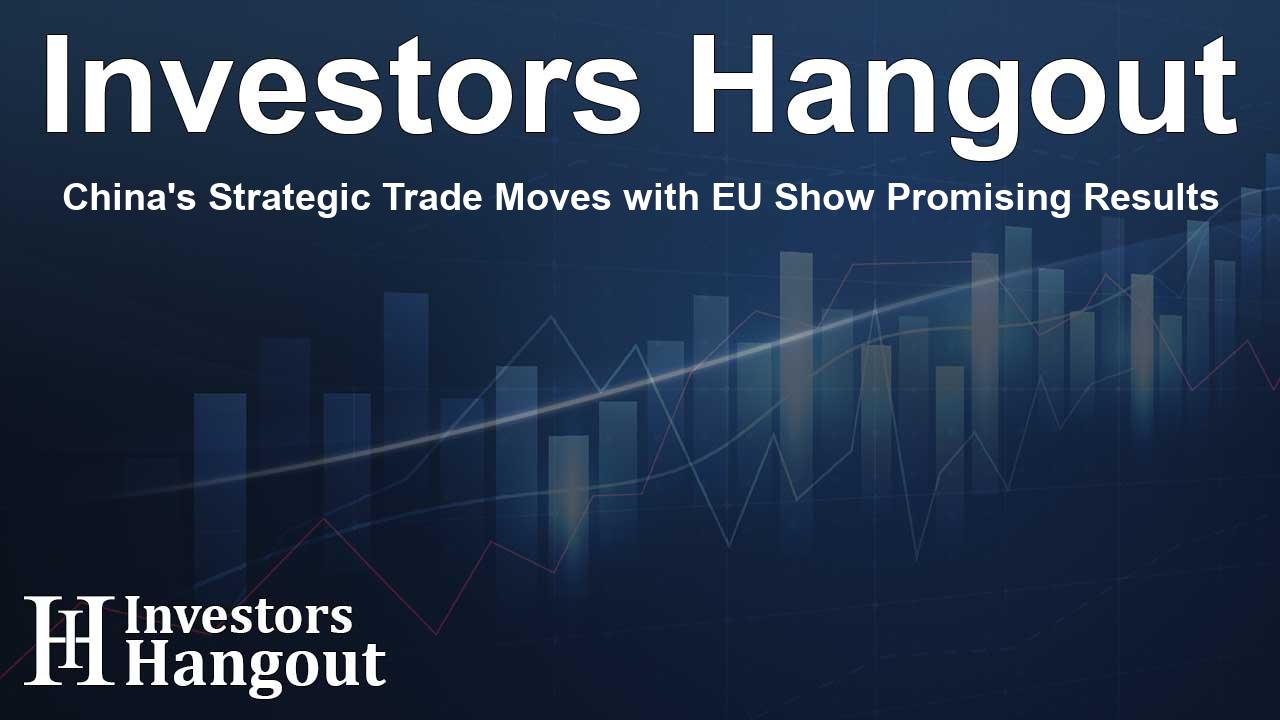China's Strategic Trade Moves with EU Show Promising Results

China's Strategic Approach to EU Trade Relations
China's negotiation strategies are evolving, especially as it faces crucial commercial decisions with the European Union. A vote on potential duties concerning electric vehicles (EVs) produced in China is on the horizon, prompting Beijing to adopt a mixed approach of incentives and threats. This strategy involves direct dialogues with influential EU member states while simultaneously warning of possible trade reprisals against those supporting such tariffs.
Impact of Trade Tariffs on Europe
Should counter-tariffs come into play, they are likely to affect several EU countries, with Spain, France, and Italy standing to face significant consequences. These nations, which have shown strong backing for EV duties, risk losing a substantial portion of their agricultural exports, including pork, dairy products, and brandy, to China.
Selected Influences from Spanish Diplomacy
The results of these diplomatic engagements are already apparent. Spanish Prime Minister Pedro Sanchez's recent visit to China culminated in a surprising call for a reevaluation of the EU's stance on EV tariffs. Reports indicate that Sanchez's delegation left feeling that Spain's position within the EU was more prominent and that a deal concerning pork tariffs was edging closer.
China's Trade Tactics and Political Considerations
China's methods showcase how it strategically leverages its agricultural imports to apply pressure on EU members considering tariff votes. Mei Xinyu, an economist based in Beijing, explains that many European exports, particularly pork and dairy, significantly rely on China as a crucial market. Combined trade from these sectors reached approximately $10 billion in 2023, although not all products will face tariffs.
Broader Export Figures
Last year, the total export figures from the EU to China exceeded $280 billion, indicating the economic importance of this relationship. Consequently, China is keen to avoid repeating the trade conflicts it faced with the U.S. during previous administrations. Beijing's stance is one of deterrence and negotiation, demonstrating a clear willingness to retaliate if tariffs are imposed.
China's Growing Electric Vehicle Market
Despite tensions, China's EV exports to the EU have surged impressively. In 2023, the shipment of Chinese EVs to Europe increased by 38%, totaling approximately 656,000 units. Europe has become a significant destination for these vehicles, representing over 40% of China's total EV exports.
Upcoming Diplomatic Engagements
Looking ahead, Chinese Commerce Minister Wang Wentao's visit to Europe will include talks with EU trade chief Valdis Dombrovskis. His itinerary extends to Italy, a nation supportive of the proposed EV tariffs, underlining the complex interdependencies at play in international trade relations.
Diverse Stances Among EU Member States
The EU's internal dynamics are intricate, with varied positions among its members. Some smaller nations, such as Ireland, have expressed skepticism concerning their dependence on trade with China, prioritizing their relationships within the EU instead. An anonymous Irish trade representative noted that while business ties with China hold importance, the realities of trade negotiations are considerably challenging.
Contrast in Treatment Towards Canada
Interestingly, China has adopted a markedly different tone in its dealings with Canada. Following Canada's implementation of heavy tariffs on Chinese EVs, Beijing launched an investigation into Canadian rapeseed exports without prior indications, emphasizing a stark contrast in diplomatic approaches with different countries. This reaction demonstrates China's readiness to use aggressive measures when it feels its interests are threatened.
Conclusion: Navigating Trade Relations
As China navigates its future dealings with the EU amid a backdrop of increasing tensions and economic calculations, the effectiveness of its strategic dealings remains to be seen. The approach taken could set profound implications not only for individual nations but for the EU as a cohesive economic entity moving forward.
Frequently Asked Questions
What is the current state of China's trade relations with the EU?
China is using a combination of incentives and threats in its negotiations with EU countries, particularly concerning potential EV tariffs.
Which EU countries are most affected by potential Chinese tariffs?
Spain, France, and Italy are significantly impacted, especially regarding their agricultural exports like pork and dairy products.
How has Spain's position changed in the EU trade negotiations with China?
After a recent diplomatic visit, Spain appears to feel more influential within the EU, with discussions on tariffs for its pork products becoming more favorable.
How have China's EV exports to Europe changed recently?
In 2023, China's EV exports to Europe rose by 38%, reflecting growing demand and deepening trade ties.
What was China's response to Canada's tariffs on EVs?
China responded swiftly with an investigation into Canadian rapeseed exports, showcasing a more aggressive approach compared to its dealings with EU nations.
About Investors Hangout
Investors Hangout is a leading online stock forum for financial discussion and learning, offering a wide range of free tools and resources. It draws in traders of all levels, who exchange market knowledge, investigate trading tactics, and keep an eye on industry developments in real time. Featuring financial articles, stock message boards, quotes, charts, company profiles, and live news updates. Through cooperative learning and a wealth of informational resources, it helps users from novices creating their first portfolios to experts honing their techniques. Join Investors Hangout today: https://investorshangout.com/
Disclaimer: The content of this article is solely for general informational purposes only; it does not represent legal, financial, or investment advice. Investors Hangout does not offer financial advice; the author is not a licensed financial advisor. Consult a qualified advisor before making any financial or investment decisions based on this article. The author's interpretation of publicly available data shapes the opinions presented here; as a result, they should not be taken as advice to purchase, sell, or hold any securities mentioned or any other investments. The author does not guarantee the accuracy, completeness, or timeliness of any material, providing it "as is." Information and market conditions may change; past performance is not indicative of future outcomes. If any of the material offered here is inaccurate, please contact us for corrections.